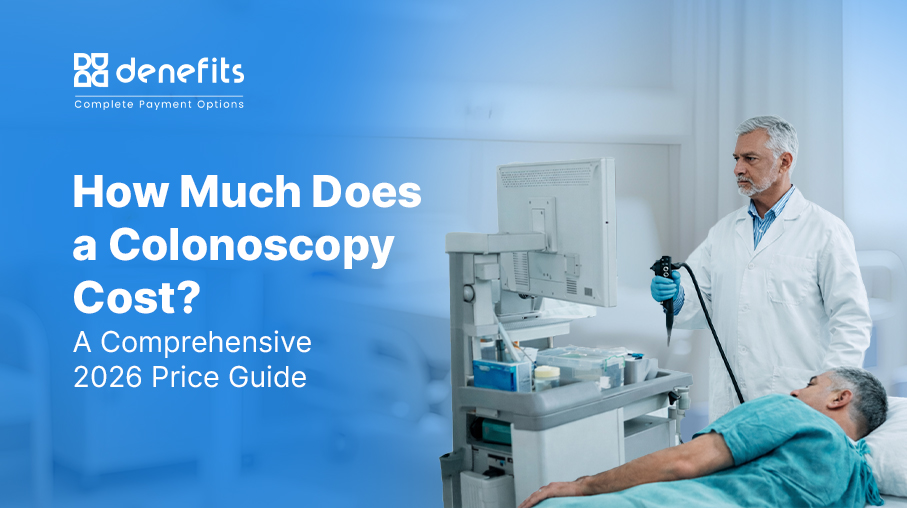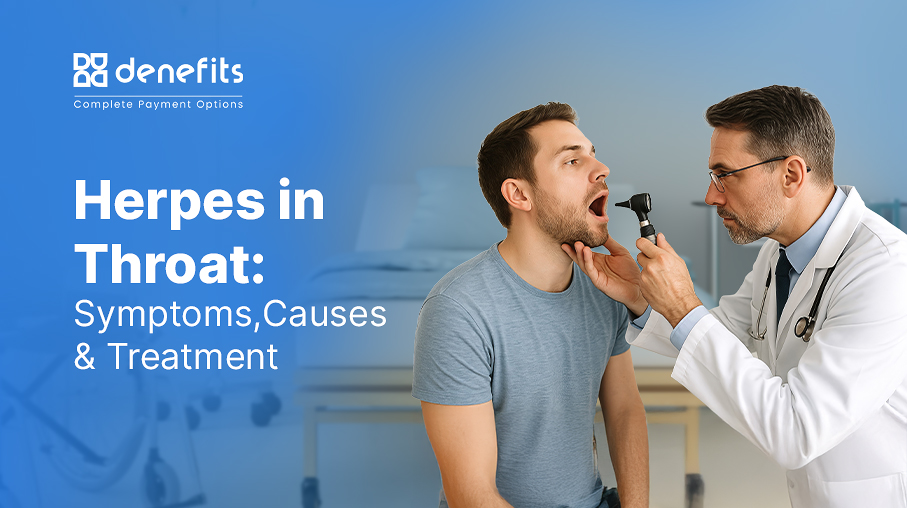
Have you been experiencing symptoms such as a sore throat, difficulty swallowing, or throat pain? It could be a sign of something more serious than a typical infection. You could be dealing with throat herpes. In addition to the common ones, a hallmark symptom of this condition is the presence of cold sores or painful ulcers on the lips, tongue, or back of the throat.
Herpes in throat is caused by the herpes simplex virus (HSV), most often HSV-1, though HSV-2—typically associated with genital herpes—can also be responsible in some cases. This infection can cause significant discomfort and is frequently mistaken for other illnesses like strep throat or tonsillitis.
In this detailed blog, we will break down all the essential information you need to know about herpes throat, including symptoms, causes, appearance, and how it differs from other conditions.
Did you know?
In the United States, HSV-1 (Herpes Simplex Virus Type 1) affects an estimated 57% to 80% of adults.
How Common is Oral Herpes?
Oral herpes is a very common viral infection.
According to the World Health Organization, most people with herpes experience no symptoms or only very mild ones. In others, the virus can become active periodically, leading to noticeable outbreaks such as ulcers or cold sores in throat. Once a person is infected, the virus stays in their body for life and can reactivate due to triggers like stress, illness, or a weakened immune system.
What Causes Herpes in Throat?
Herpes in the throat is caused by the herpes simplex virus (HSV), most commonly HSV-1, though HSV-2 can also be responsible in some cases.
The virus typically enters the body through:
- Direct contact with infected saliva, skin, or mucous membranes
- Kissing, sharing utensils, drinks, or lip balm with an infected person
- Oral sex, especially when HSV-2 is involved
- Self-inoculation, where the virus spreads from one part of the body (like a cold sore) to another area (like the throat) through touch
Once the virus enters the body, it may cause a primary infection (often the most intense), after which it remains dormant in nerve cells. Typically, the primary infection appears within 2 to 20 days after exposure. Over time, it can reactivate, especially when triggered by:
- Stress
- Fatigue
- Illness
- Hormonal changes
- A weakened immune system
This reactivation is what can lead to periodic outbreaks, including the appearance of herpes lesions in the throat, mouth, or esophagus.
What Are the Types of Herpes Infection?
There are two main forms of oral herpes infection:
Herpetic Pharyngitis (Oral Pharyngitis)
This refers to herpes infection in the mouth, throat, and pharynx. It typically presents during a primary HSV infection, especially in children and young adults. Herpetic pharyngitis may resemble strep throat or viral tonsillitis, making it easy to misdiagnose without proper testing.
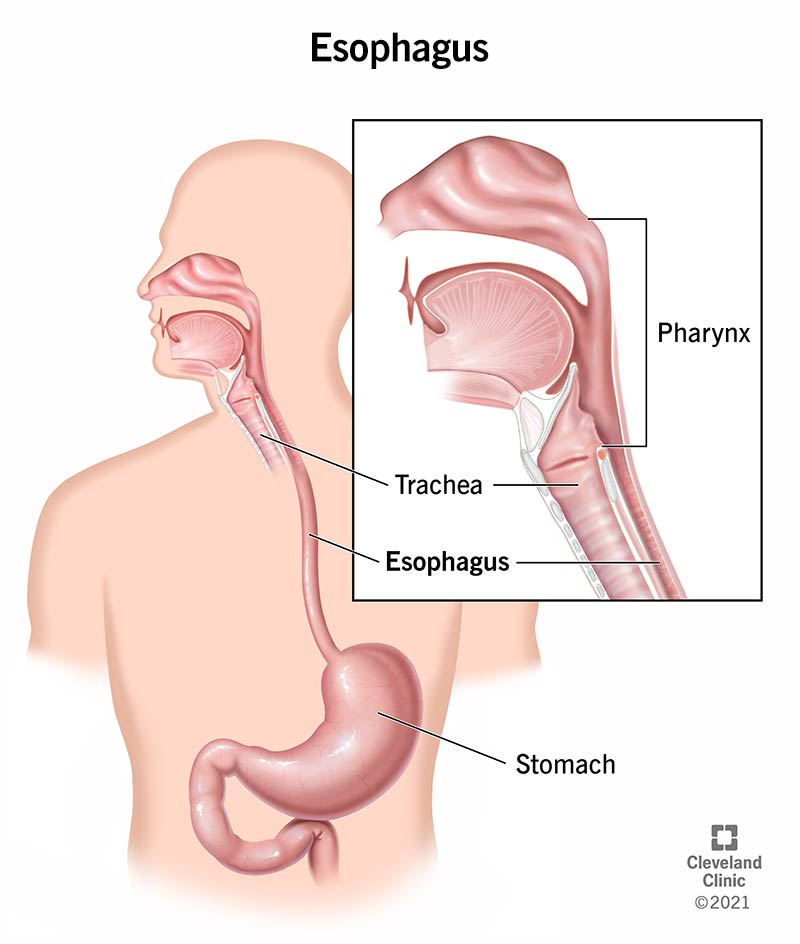
Herpes Esophagitis
This is a more severe infection where the herpes virus spreads to the esophagus. The esophagus is the tube that carries food from the mouth to the stomach. It’s more common in people with weakened immune systems, such as those with HIV, cancer, or those undergoing chemotherapy or organ transplant. This condition can be serious and requires prompt antiviral treatment.
What Are the Symptoms of Throat Herpes?
The symptoms of throat herpes can vary depending on whether the infection is limited to the mouth and upper throat (Herpetic Pharyngitis) or has extended deeper into the esophagus (Herpes Esophagitis). Both forms can cause significant discomfort and are sometimes mistaken for other conditions due to similar symptoms.
Symptoms of Herpetic Pharyngitis (Oral Pharyngitis)
This typically occurs during a primary HSV infection, especially in children, teens, or young adults. Symptoms may include:
- Severe sore throat and difficulty swallowing
- Painful ulcers in throat or blisters on the lips, tongue, inside the cheeks, or back of the throat
- Swollen lymph nodes in the neck
- Red, inflamed throat that may resemble strep
- Fever and body aches
- General fatigue or malaise
These symptoms may last 7–14 days, with the initial outbreak being more intense than future recurrences.
Symptoms of Herpes Esophagitis
This occurs when the herpes virus infects the esophagus, often in people with weakened immune systems. In such cases, the symptoms are often more intense and may include:
- Sharp or burning pain in the chest or throat, especially while swallowing
- Difficulty swallowing solid or even liquid foods
- Chest discomfort that may mimic heartburn
- Loss of appetite and unintentional weight loss
- Fever or chills, especially in immunocompromised individuals
If untreated, herpes esophagitis can lead to complications like ulcers, bleeding, or strictures in the esophagus.
If you're experiencing a persistent sore throat, painful swallowing, or unusual oral lesions, especially with other systemic symptoms, it's important to consult a healthcare provider for a proper diagnosis and timely treatment.
What Does Herpes in Throat Look Like?
Throat herpes often appears as small, painful blisters or ulcers on the throat, tonsils, or roof of the mouth.
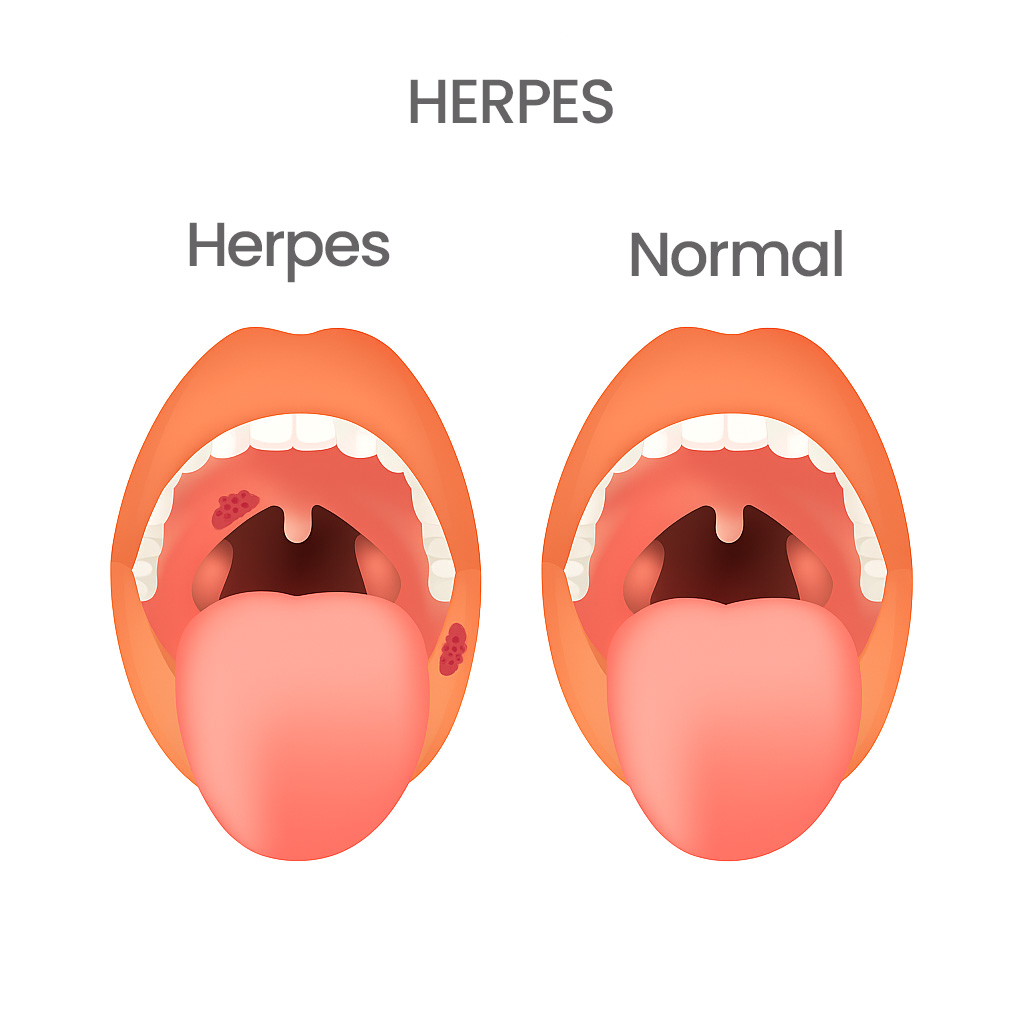
Stages of a Cold Sore
If you develop a cold sore on your lip due to HSV-1, it typically goes through the following stages:
1. Tingling and Itching (Prodrome) (Day 1–2): You may feel a burning, itching, or tingling sensation around your lip before a sore appears.
2. Blistering (Day 2–4): Small fluid-filled blisters form, often grouped together.
3. Ulceration (Day 4–5): The blisters burst, leaving shallow open sores that may be painful.
4. Crusting (Day 5–8): The sores dry out and form a yellowish-brown crust.
5. Healing (Day 8–10): The scab falls off and the skin heals, usually without scarring.
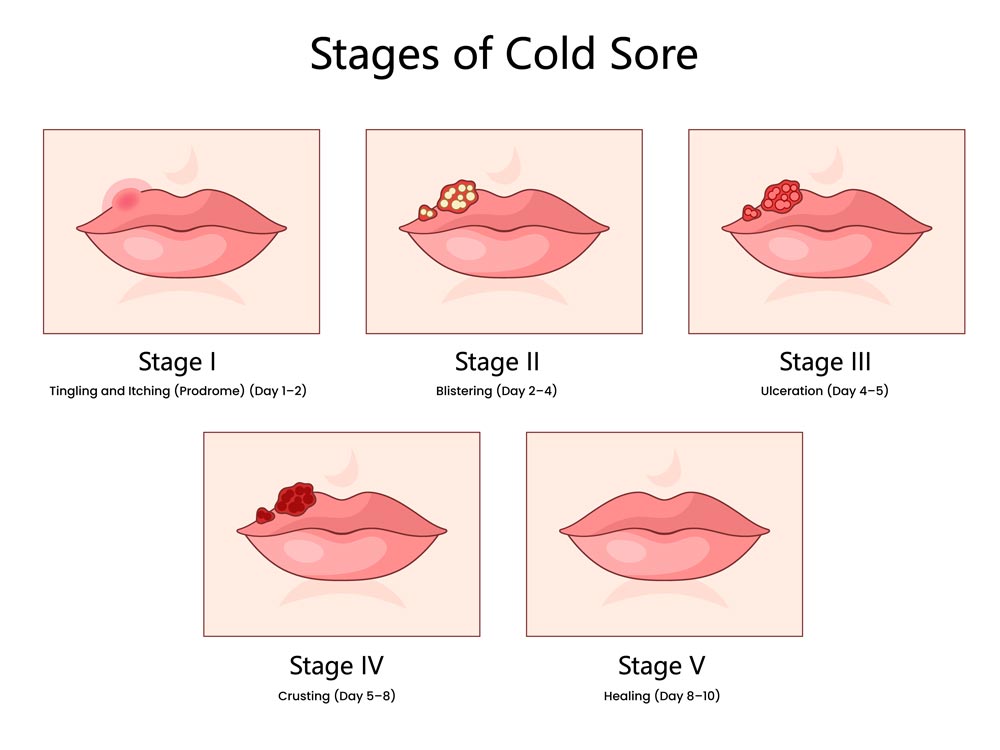
How is Throat Herpes Diagnosed?
Herpes in throat can often be confused wth common conditions like strep throat, tonsillitis, or even acid reflux. That is why it is important to get a professional diagnosis. A healthcare provider will typically begin with a physical examination and a review of your symptoms and medical history. To confirm the diagnosis, one or more of the following tests may be performed:
- Throat swab or lesion swab: A sample is taken from visible sores or ulcer in throat and tested for HSV using PCR (polymerase chain reaction) or viral culture.
- Blood test: Can detect the presence of antibodies to HSV-1 or HSV-2, indicating past or current infection.
- Endoscopy: If the infection has progressed to the esophagus, a gastroenterologist may perform an upper endoscopy to visually examine the esophagus and collect biopsy samples.
- Biopsy: Tissue from the throat or esophagus may be analyzed to confirm HSV infection, especially in immunocompromised patients.
How is Herpes In Throat Treated?
While there is no permanent cure for herpes, the condition can be effectively managed with the right care and attention. Treatment primarily focuses on relieving symptoms, shortening the duration of outbreaks, and preventing complications.
General Treatment Approach:
- Professional care: A healthcare provider may recommend appropriate therapy based on the severity of the outbreak and your overall health.
- Early intervention: Starting treatment early can help reduce the intensity and duration of symptoms.
Ongoing Management:
- Learning to identify and avoid triggers, such as stress, fatigue, or illness
- Maintaining a strong immune system through healthy habits and nutrition
- Seeking regular guidance from a healthcare provider, especially if symptoms recur
How Long Does It Take for Herpes to Go Away?
Throat herpes typically lasts between 2 and 3 weeks during the initial outbreak, which is often the most intense. In cases of recurrence, the symptoms usually resolve within 7 to 10 days. However, the healing time can vary depending on factors such as the strength of your immune system and how early you begin managing the symptoms.
It’s important to note that even after the visible symptoms have cleared, the herpes virus remains dormant in your body and may reactivate in the future, often triggered by stress, illness, or fatigue.
Is Throat Herpes Contagious?
Yes. Herpes is highly contagious, especially during an active outbreak.
The virus spreads through:
- Saliva
- Direct contact with sores or blisters in throat
- Sharing utensils, drinks, or personal items
- Intimate contact involving mouth-to-mouth or mouth-to-genital exposure
🗣️ Tips to Manage Throat Herpes
Rest & Hydration
Give your body time to recover. Drink plenty of fluids to stay hydrated.
Eat Soothing Foods
Choose soft, bland meals. Avoid spicy, acidic, or crunchy foods.
Avoid Spreading
Don’t share cups, utensils, or towels. Avoid kissing during outbreaks.
Lower Stress
Manage stress through rest, mindfulness, or light activity—stress can trigger flare-ups.
Keep It Clean
Maintain oral hygiene, but avoid irritating mouthwashes during an outbreak.
Consult a Doctor
If symptoms persist, worsen, or keep recurring, seek medical guidance.
Throat Herpes vs. Strep Throat vs. Tonsillitis
| Features | Throat Herpes | Strep Throat | Tonsillitis |
| Cause | Herpes Simplex Virus (HSV-1 or HSV-2) | Group A Streptococcus bacteria | Viral (most common) or bacterial infection |
| Onset of Symptoms | Gradual, may follow tingling/burning | Sudden onset of sore throat and fever | Gradual or sudden onset |
| Pain Level | Moderate to severe, especially while swallowing | Sharp, intense throat pain | Throat pain, often severe |
| Ulcers/Lesions | Painful blisters or ulcers in throat, mouth, or lips | No ulcers or blisters in throat | Rare, unless caused by specific viruses |
| Tonsil Involvement | Red, inflamed, may have ulcers | Swollen, red with white spots or pus | Markedly swollen, red, may have a white/yellow coating |
| Fever | May occur, usually mild (depending on the person) | High fever common | Mild to high fever, depending on the cause |
| Other Symptoms | Swollen lymph nodes, fatigue, cold sore history | Headache, nausea, body aches, rash (sometimes) | Ear pain, difficulty swallowing, muffled voice |
| Contagious? | Yes, especially through saliva or sores | Yes, through respiratory droplets | Yes, if caused by a virus or bacteria |
| Treatment Approach | Supportive care, rest, fluids, antivirals (if prescribed) | Antibiotics and supportive care | Supportive care; antibiotics if bacterial |
| Diagnosis | Physical exam, swab, or blood test | Rapid strep test or throat culture | Physical exam, throat swab, possibly blood tests |
How Much Does Oral Herpes Treatment Cost, and Is It Covered by Insurance?
The cost of treating oral herpes throat can vary depending on factors like the severity of the condition, the type of care required, and whether you are seeing a general physician or a specialist. In general, treatment may include consultations, diagnostic tests, and symptom management or antiviral therapy.
Health insurance often covers many aspects of herpes diagnosis and treatment. This typically includes:
- Initial and follow-up visits with a healthcare provider
- Laboratory tests used to confirm the infection
- Prescribed treatment, if necessary
It’s always a good idea to check your specific insurance policy or contact your provider directly to understand what’s included in your plan.
Flexible Payment Options with Denefits
If you’re uninsured or dealing with out-of-pocket expenses, consider speaking to your healthcare provider about flexible payment options like those offered through Denefits. With no credit checks and a high approval rate, Denefits allows patients to break down their medical bills into affordable monthly installments. It's a helpful solution for those who need care now but prefer to pay over time, without financial strain.
Conclusion
Oral herpes is more common than many realize, and while it can be uncomfortable, especially when it affects the throat, tonsils, or tongue, it’s manageable with the right care and awareness. Understanding the symptoms, how it spreads, and the importance of early diagnosis can help individuals take better control of their health. If you're experiencing persistent throat pain or unusual sores, consult a healthcare provider for guidance. And if cost is a concern, ask about insurance coverage or flexible payment plans like those offered by Denefits. Staying informed and seeking early medical attention are key to effectively managing oral herpes.
FAQs
1. What Does Early Throat Herpes Look Like?
Early throat herpes may appear as small red spots or fluid-filled blisters on the back of the throat or tonsils, often accompanied by a sore throat or discomfort while swallowing.
2. Can You Get Herpes on Your Tongue?
Yes, herpes on the tongue can cause painful blisters or sores that may interfere with speaking and eating.
3. What Does Herpes Look Like on the Tongue?
Herpes on the tongue may look like tiny blisters or shallow ulcers, often painful and clustered, especially along the sides or underside of the tongue.
4. Can I Get Oral Herpes Tonsils?
A: Oral herpes can cause painful sores or ulcers on the tonsils, sometimes mistaken for tonsillitis or strep throat due to similar symptoms.
5. What Does Herpes on Tonsils Look Like?
A: Herpes on the tonsils may appear as small, white or yellowish sores surrounded by redness and swelling, often resembling other throat infections.
6. What Does a Herpes Sore Throat Feel Like?
A: A herpes sore throat typically feels painful and raw, especially when swallowing, and may be accompanied by swollen glands and a burning sensation.
7. Can I Get Herpes Back of the Throat?
A: Herpes at the back of the throat may show as red, blistered, or ulcerated areas, often causing significant pain and difficulty swallowing.
8. What Are Throat Ulcer Symptoms?
A: Symptoms of throat ulcers include sharp pain, a burning sensation, difficulty swallowing, and visible open sores or lesions in the throat.
